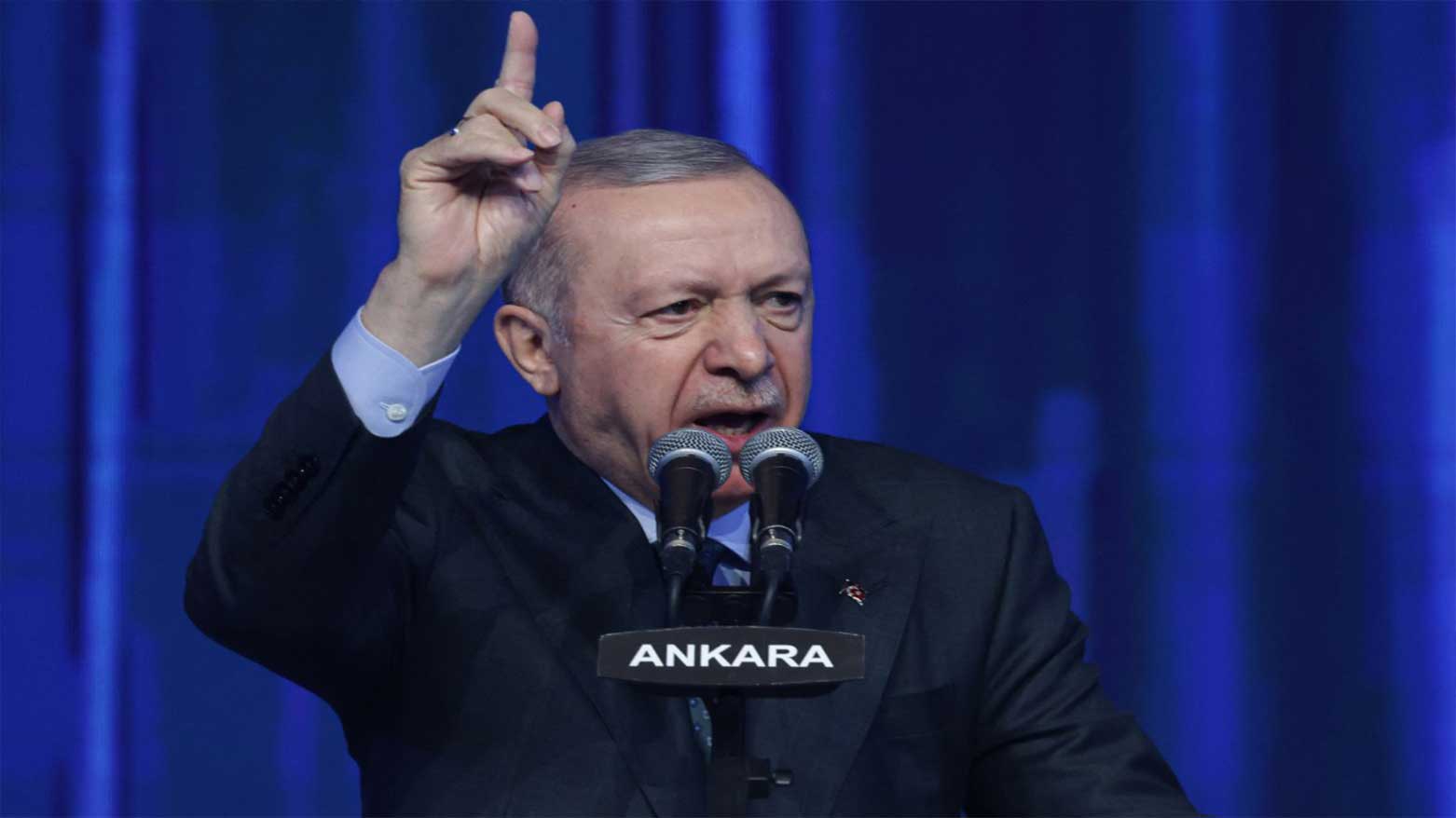Erdogan Warns of Renewed Assault on PKK if Promises Not Kept
"We will keep on our ongoing operations until we eliminate the last terrorist," Erdogan asserted.

ERBIL (Kurdistan24) – Turkish President Recep Tayyip Erdogan issued a stern warning on Saturday, stating that Turkey would resume military operations against “outlawed Kurdish militants” if commitments made are not upheld.
This declaration came during a Ramadan fast-breaking dinner in Istanbul, just hours after the Kurdistan Workers' Party (PKK), designated as a terrorist organization by Turkey, EU, and the United States, announced a ceasefire in response to a call from their imprisoned leader, Abdullah Ocalan, to disarm and dissolve.
"We will continue our ongoing operations until we eliminate the last terrorist," Erdogan asserted, emphasizing Turkey's unwavering stance against the PKK despite the recent ceasefire announcement.
PKK's Ceasefire Declaration
The PKK, a militant group that has waged a four-decade insurgency against the Turkish state, declared an immediate ceasefire following Ocalan's appeal. Ocalan, who has been imprisoned since 1999, urged the group to lay down arms and seek peaceful resolutions, marking a pivotal step toward ending a conflict that has resulted in over 40,000 deaths since 1984.
In a statement, the PKK emphasized the necessity of a democratic political environment to ensure the success of the ceasefire and called for Ocalan's release to oversee their transformation. The group also highlighted that for the disarmament process to progress, Ocalan must be granted more freedom.
Turkish Government's Response
While the ceasefire has been acknowledged, the Turkish government remains cautious. Erdogan's administration has not extensively responded to the PKK's announcement, maintaining a firm stance that no discussions on amnesty or house arrest for Ocalan are currently on the table. The government insists that all PKK-linked groups must disband, reflecting Ankara's commitment to defending its borders and interests against perceived threats.
Background and Recent Developments
The PKK is a militant group that has waged an insurgency against Turkey since 1984, initially seeking independence but later shifting to demands for Kurdish autonomy. Founded by their jailed leader Abdullah Ocalan, it follows Marxist-Leninist ideology and promotes Democratic Confederacies while using guerrilla warfare and political influence to push its agenda.
Despite Turkey’s efforts to integrate Kurds politically, the PKK continued armed attacks, destabilizing the region and causing civilian suffering. Operating from the Kurdistan Region of Iraq’s Qandil Mountains, it maintains ties with armed affiliates like the Syrian Democratic Forces (SDF) and other armed groups in Syria. The PKK has a history of rejecting peaceful solutions, provoking military responses, and undermining regional stability.
In recent years, Turkey has intensified cross-border operations against the PKK, particularly targeting bases in the Kurdistan Region of Iraq's mountainous areas near the Turkish border. These operations underscore Ankara's determination to ensure Turkey’s internal security through conducting military operations beyond its borders.
The PKK's recent ceasefire declaration is seen as a significant step toward peace, with potential historic implications if followed through. However, the success of this initiative largely depends on the Turkish government's willingness to engage in dialogue and the PKK's commitment to disarmament.
The broader geopolitical landscape, including ongoing conflicts involving Kurdish groups loyal to PKK in Syria, adds complexity to the situation, making the path to lasting peace both challenging and uncertain.
As the region watches closely, the coming weeks will be critical in determining whether this ceasefire leads to a durable peace or if longstanding hostilities will resume.